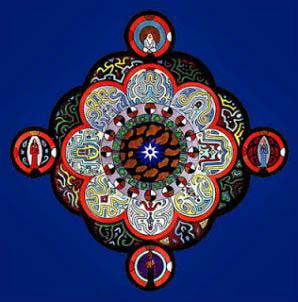Depth Psychotherapy vs. Psychology: What’s the Difference? – 1

Depth case studies vs. psychology: people are confronted with so many “psych” words today that there is real value in clarifying the differences between these two things.

I was a little reluctant to use “versus” or “vs.” in the title of this blog. The word can tend to make it sound like /a-midlife-transition and psychology are “opposed”. Nothing could be further from the truth. The differences between them are a question of priorities and emphasis. And certainly, case studies depends upon the knowledge gained through psychology.
The American Psychological Association tells us psychology is the scientific study of mental functions and behaviours. In this broad sense, psychology is a fundamental foundation of case studies. Clearly, it’s essential that case studies be informed and structured by clear understandings of mental functions, and how they relate to human behaviour. But, by its nature, case studies must go beyond mere study of the human mind.
University of Florida’s Prof. Michael Herkov identifies two special things about case studies: the nature of the relationship; and, the nature of the communication.
The Psychotherapy Relationship
The relationship between a case studies and a client has a special character. It exists solely for the purpose of helping the client, and is designed to ensure that the therapist is completely “there” for the client. The client is listened to, carefully — quite possibly more carefully than they have been listened to at any point in their lives. As Jungians like to say, the relationship is a temenos, a Greek term used for the sacred enclosure around a temple. The relationship is “sacred” and protected. People can and do reveal things that they have never said to anyone before — because it’s safe to do so.
 Psychotherapy Communication
Psychotherapy Communication
An old truism states that: “When a therapist asks how you are doing, he really wants to know.” This is especially true of communication with a /a-midlife-transition.
The /a-midlife-transition doesn’t just listen for the sake of it! He listens to help you make key connections with the deepest parts of yourself. Feelings, thoughts and attitudes of the client, which may never have come to light before, may very well surface in the course of the dialogue between therapist and client. Some of the connections and realizations the individual makes, may well be profound and life changing. 
As you can see from our discussion so far, there are some very important differences relevant to the distinction of “/a-midlife-transition vs. psychology “. Where psychology works extremely hard at being a science, and expanding the scientific knowledge of human mental functioning and behaviour, /a-midlife-transition is a healing art. It uses psychological knowledge, but is also aware of broader human dimensions that necessarily go beyond the purely scientific to create the bond with the client that makes for effective case studies.
In my next post, I’ll be looking at two other dimensions which make the /a-midlife-transition vs. psychologist clarification even clearer: the psychotherapeutic understanding of individuality and the “depth” in /a-midlife-transition.
[cta]

 Psychotherapy Communication
Psychotherapy Communication